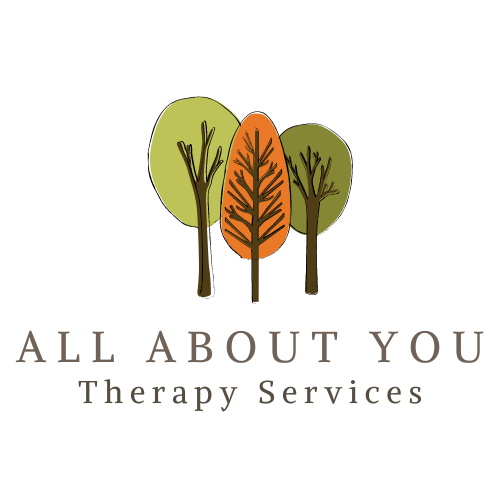Do you ever catch yourself apologizing for things that aren’t even your responsibility?
Maybe a friend is upset, and you assume you did something wrong. Or something goes wrong at work, and you immediately feel responsible—even if it had nothing to do with you. At All About You Therapy, we want you to know that if this resonates with you, you’re not alone.
Many people, especially women, struggle with chronic self-blame. But why does this happen? And more importantly, how can you start letting go of guilt that isn’t yours to carry?
Where Does Self-Blame Come From?
Feeling like everything is your fault isn’t just a personality trait—it’s often learned. Here are some common reasons why this pattern develops:
1. Childhood Conditioning
The way we were raised has a big impact on how we process responsibility. If you grew up in a home where love felt conditional—where you had to be “good” or “helpful” to be valued—you may have learned that keeping the peace was your job.
Children in emotionally unpredictable environments often take on a “fixer” role, believing, If I do everything right, maybe I can keep things from falling apart. Over time, this turns into chronic self-blame in adulthood.
2. Gender Expectations
Research shows that women are more likely than men to internalize blame. From a young age, girls are often socialized to be caretakers, peacemakers, and emotional managers in their families and relationships. As a result, many women grow up feeling responsible for other people’s emotions, even when those emotions are beyond their control.
3. Anxiety and Overthinking
People with anxiety tend to be hyper-aware of potential problems and often blame themselves as a way to feel in control. If something is your fault, then maybe you can fix it. But in reality, this self-blame just leads to excessive guilt, stress, and exhaustion.
4. Past Trauma
If you’ve experienced trauma—especially emotional abuse or manipulation—you might have been conditioned to believe that you’re the problem. Gaslighting, for example, can make you doubt your perception of reality and feel like you’re always in the wrong, even when you aren’t.
How to Stop Feeling Like Everything Is Your Fault
The good news? You don’t have to live with this weight forever. Healing takes time, but here are some steps to help you shift out of chronic self-blame:
1. Ask Yourself: Is This Really My Responsibility?
Before you immediately take the blame, pause and ask:
✔ Did I actually cause this problem?
✔ Would I blame someone else for the same thing?
✔ Am I taking responsibility for someone else’s emotions?
Often, just taking a moment to reflect can help you realize that not everything is yours to fix.
2. Challenge the Guilt with Logic
When you catch yourself feeling guilty, ask:
- What evidence do I have that this is my fault?
- Is there another possible explanation?
- Would I expect someone else to feel guilty in this situation?
Practicing this kind of self-awareness can help you separate real responsibility from unnecessary guilt.
3. Set Emotional Boundaries
You are not responsible for managing other people’s emotions. If someone is upset, it doesn’t always mean you did something wrong. Learn to differentiate between being supportive and taking on emotional labor that isn’t yours.
4. Reframe Mistakes as Growth
Making a mistake doesn’t mean you’re a bad person. Instead of thinking, I messed up, so I’m terrible, try reframing it as, I made a mistake, and I can learn from it. Self-compassion is key to breaking the cycle of self-blame.
5. Consider Therapy
If chronic self-blame is affecting your mental health, women’s counseling can help you unpack the root causes and develop healthier ways of thinking. Cognitive-behavioral therapy (CBT) has been shown to be especially effective in helping people challenge negative thought patterns and reduce guilt. Our team at All About You Therapy includes therapists who specialize in CBT, and we’re here to support you. Ready to take the first step?
You Are Not to Blame for Everything
Feeling like everything is your fault is not a reflection of reality—it’s a learned pattern that can be unlearned. You don’t have to carry the weight of the world on your shoulders. You deserve to feel at peace.
If you’re struggling with self-blame, therapy can help. At All About You Therapy, we create a safe space for you to explore these feelings and learn healthier ways to navigate guilt and responsibility. You don’t have to do this alone—help is here.



